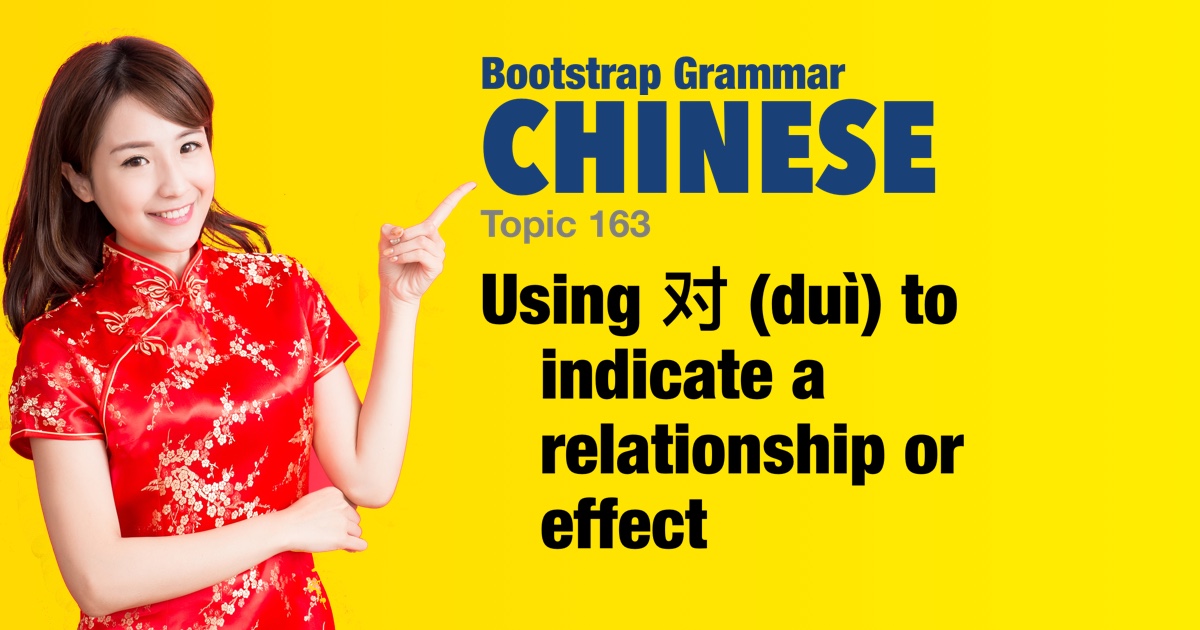Chinese grammar - Using 对 (duì) to indicate a relationship or effect |
|||
|
|||
The Chinese preposition 对 (duì) is used to indicate a relationship, effect, or attitude towards something or someone. It is often used to specify to whom or what an verb or adjective applies. It often translates to 'at', 'to', 'towards', 'for', or 'with regard to' in English. It is easiest to just remember which specific adjectives take 对 (duì). — For example 生气 ('angry') takes 对 to specify at whom the subject is angry. |
| Examples: | |
|
她对你很生气。
tā duì nǐ hěn shēngqì. She is very angry with you.
|
|
|
他对她非常好。
tā duì tā fēicháng hǎo. He is extremely good to her.
|
|
|
她一直对我很好。
tā yìzhí duì wǒ hěn hǎo. She has always been good to me.
|
|
|
他对音乐很感兴趣。
tā duì yīnyuè hěn gǎnxìngqù. He is very interested in music.
|
|
|
老师对学生很严格。
lǎoshī duì xuéshēng hěn yángé. The teacher is very strict with the students.
|
|
|
他对猫过敏。
tā duì māo guòmǐn. He is allergic to cats.
|
|
|
她对旅行很有兴趣。
tā duì lǚxíng hěn yǒu xìngqù. She is very interested in traveling.
|
|
|
医生对病人很关心。
yīshēng duì bìngrén hěn guānxīn. The doctor is very concerned about the patient.
|
|
|
你对这个问题怎么看?
nǐ duì zhè ge wèntí zěnme kàn? What do you think about (How do you see) this issue?
|
|
|
你对你的新老师满意吗?
nǐ duì nǐ de xīn lǎoshī mǎnyì ma? Are you satisfied with your new teacher?
|
|
|
我对这件事很感兴趣。
wǒ duì zhè jiànshì hěn gǎnxìngqù. I am very interested in this matter.
|
|
|
我对你的意见表示同意。
wǒ duì nǐ de yìjiàn biǎoshì tóngyì. I agree with your opinion.
|
|
|
这个信息对我很有帮助。
zhè ge xìnxī duì wǒ hěn yǒubāngzhù. This information is very helpful to me.
|
|
|
他对自己很有信心。
tā duì zìjǐ hěn yǒu xìnxīn. He has confidence in himself.
|
|
 |
|


 To say 'to be angry at' use
To say 'to be angry at' use 
